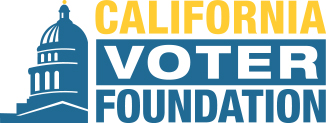Excerpts:
The two biggest states participating in Super Tuesday represent another story aside from what happens in the Democratic primary: Voting rights.
California and Texas are the most populous states in the nation and the biggest delegate prizes on Tuesday for the presidential contestants. They also present a stark contrast in voting laws.
Deeply Democratic California has taken several steps in recent years to make it easier to register and vote, including pre-registration for teenagers, community drop-off centers for early voting and the ability to register on Election Day.
While Texas has early voting, the Republican-controlled state also has policies that make voting more challenging. Those include a voter ID law that allows handgun licenses but not college IDs, and restrictions on how and when people can register. Last year, Texas officials also sent letters to 95,000 registered voters to tell them they may not be eligible because they're not citizens - only to find serious flaws in the list.
The two Super Tuesday giants illustrate how the ability to easily register and cast a ballot depends in many ways on where voters live. In the last presidential election four years ago, 75% of registered California voters participated. In Texas, it was 59%.
- - - - - - - - -
California is among states that have gone in the opposite direction. This year's primary, for example, is the first time California has allowed voters to register on Election Day at any polling place in designated counties. Kim Alexander, president of the nonpartisan California Voter Foundation, said one possible problem is a rush of people signing up at the last minute could make for long lines at vote centers. Still, she praised the state for trying to making voting accessible to as many people as possible.
“California has made some great progress in expanding voting rights to more people,” Alexander said. “We are in a state of experimentation right now with different voting models.”
Texas is one of 11 states that does not offer online registration, according to the National Council of State Legislatures. Volunteers who want to register voters must first go through a process that requires a training session or taking a test at a government office. They must go through the same process in each county where they intend to sign up voters.
Last year, the Legislature considered a bill that would have made it a crime to put incorrect information on a voting application, even by accident. The bill passed the Senate, but never got a vote in the House. Charlie Bonner, a spokesman for MOVE Texas, which focuses on registering young voters, said the measure would have been a major deterrent to groups like his if it had been signed into law.
“My greatest fear was we were going to suppress people who wanted to help their friends and neighbors get registered,” he said.
- - - - - - -
To vote by mail in Texas, voters have to be 65 or older, disabled or declare a reason they can't vote in person. Their ballots must be postmarked no later than Election Day and received by the day after.
California is among a growing number of states with no-excuse mail-in voting. Like in Texas, ballots must be mailed back by Election Day, but they will still count if they're received up to three days later.
Under a recent reform, 14 California counties now send every voter a ballot in the mail. Voters can mail them back in envelopes with prepaid postage, drop them off at a community vote center or have someone else drop them off.
"I’m glad that we have changed our laws in a number of ways that will make voting a lot easier for a lot more people, and hopefully a satisfying experience, " Alexander of the California Voter Foundation said. (Full Story)

